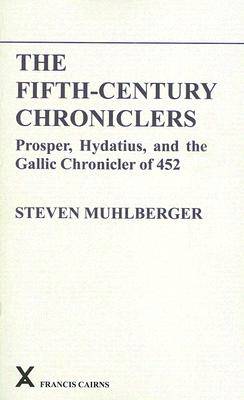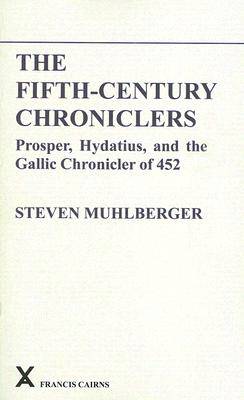
- Afhalen na 1 uur in een winkel met voorraad
- Gratis thuislevering in België vanaf € 30
- Ruim aanbod met 7 miljoen producten
- Afhalen na 1 uur in een winkel met voorraad
- Gratis thuislevering in België vanaf € 30
- Ruim aanbod met 7 miljoen producten
Zoeken
€ 90,95
+ 181 punten
Omschrijving
The fifth century AD has always been a period of intense interest for historians. At the beginning, the Roman Empire looked as impentrable as it had done for centuries, but by 500AD the world had changed beyond recognition. The western emperor had been deposed and the imperial government had lost control of most of Europe. From now on, inhabitants of western Europe lived in a post-Roman world. The writers of Latin histories in the fifth century were not concerned with the minutiae of politcs, or military affairs, they were Christians who saw the development of the world purely as God's plan for humanity. The connection between present and past was best shown through the new type of historical work, the Christian chronicle, the narrative structure of which was based around extensive lists, with minimal written detail. The three chroniclers whose work is discussed here were amongst the earliest to take up this new literary form, and each wrote a continuation of Jerome's chroncile, itself a translation of Eusebius' Christian world chronicle.
Specificaties
Betrokkenen
- Auteur(s):
- Uitgeverij:
Inhoud
- Aantal bladzijden:
- 329
- Taal:
- Engels
- Reeks:
Eigenschappen
- Productcode (EAN):
- 9780905205465
- Verschijningsdatum:
- 12/12/1990
- Uitvoering:
- Paperback
- Formaat:
- Trade paperback (VS)
- Afmetingen:
- 140 mm x 216 mm
- Gewicht:
- 444 g

Alleen bij Standaard Boekhandel
+ 181 punten op je klantenkaart van Standaard Boekhandel
Beoordelingen
We publiceren alleen reviews die voldoen aan de voorwaarden voor reviews. Bekijk onze voorwaarden voor reviews.











